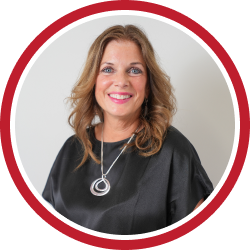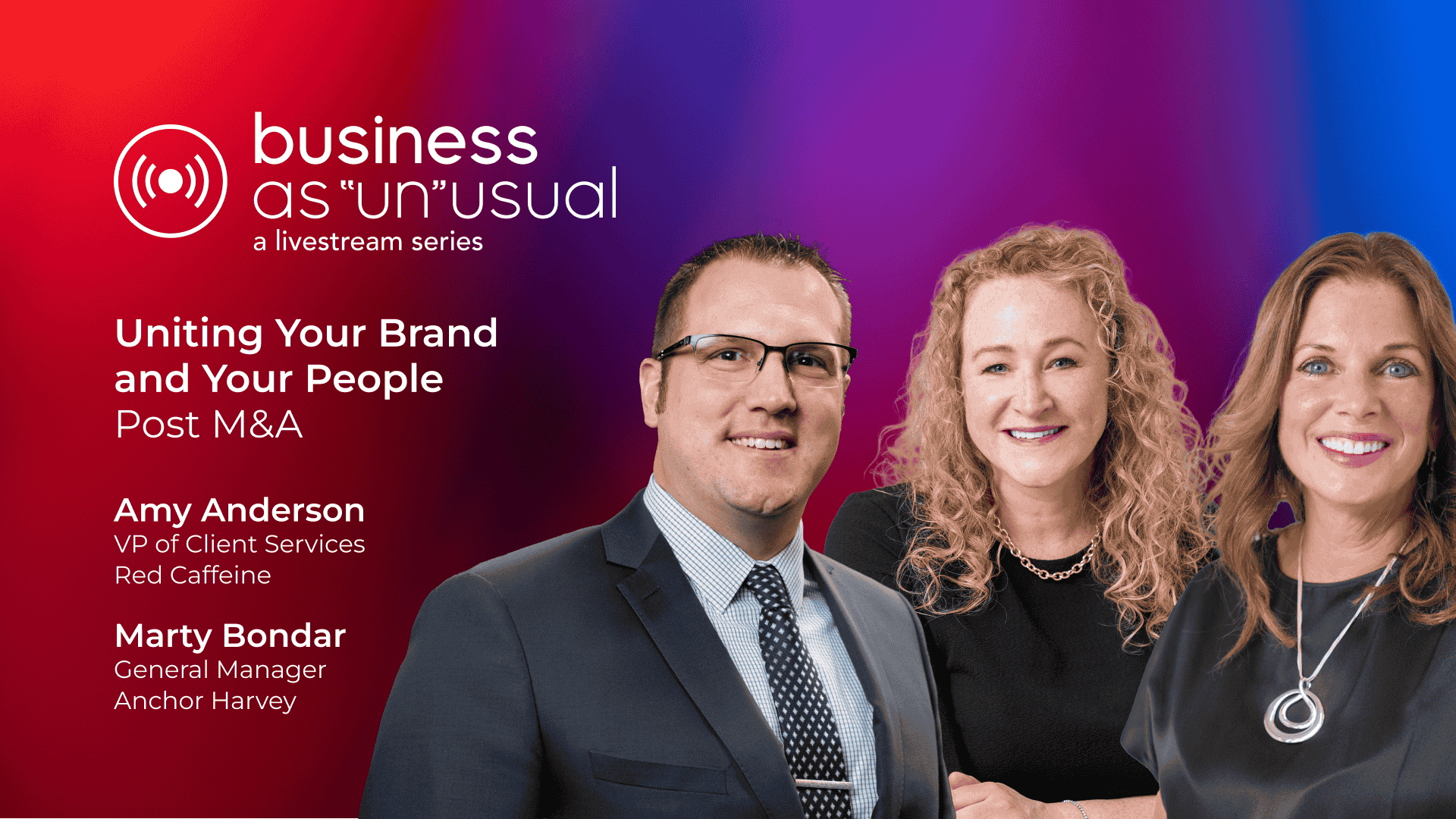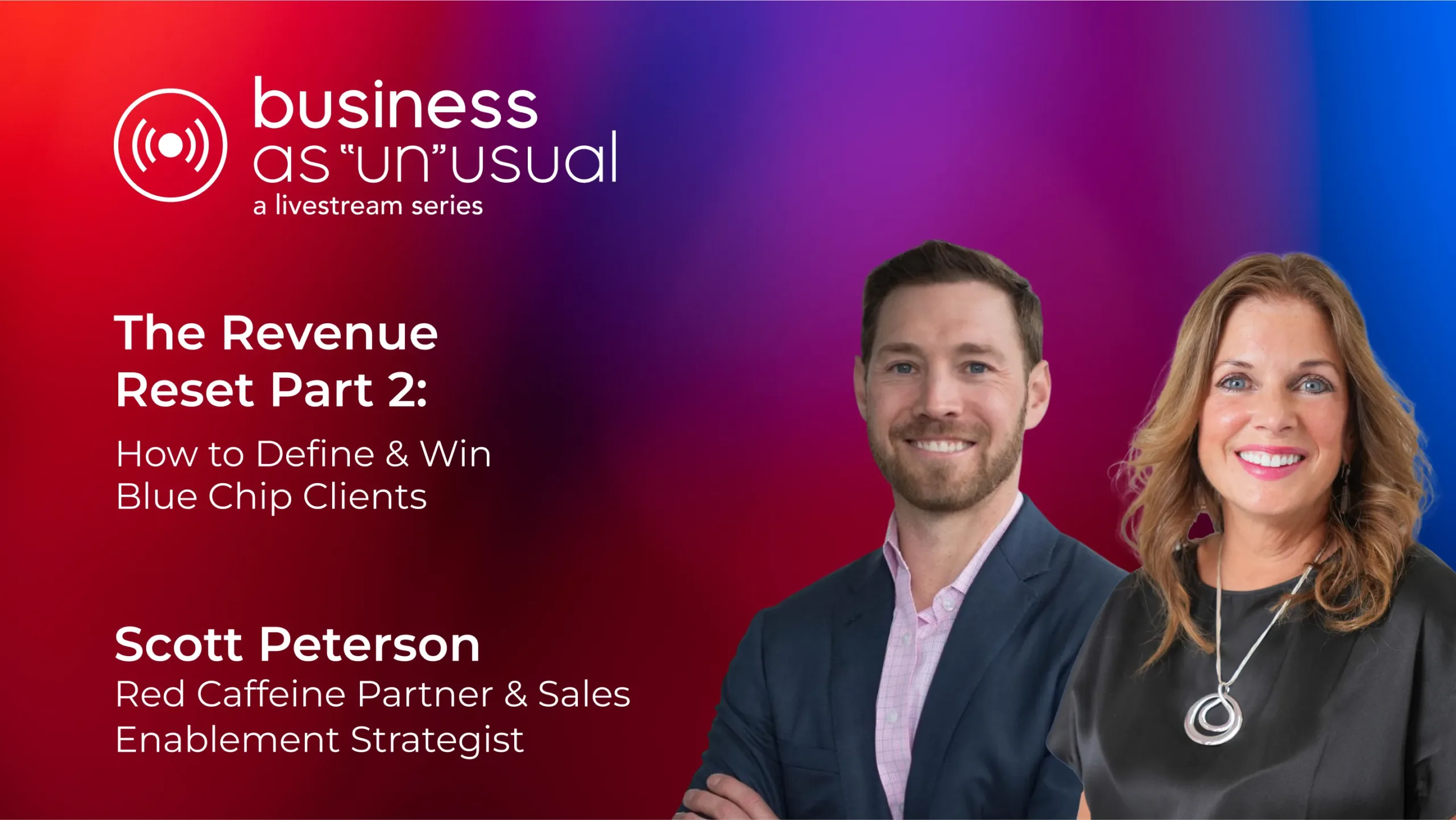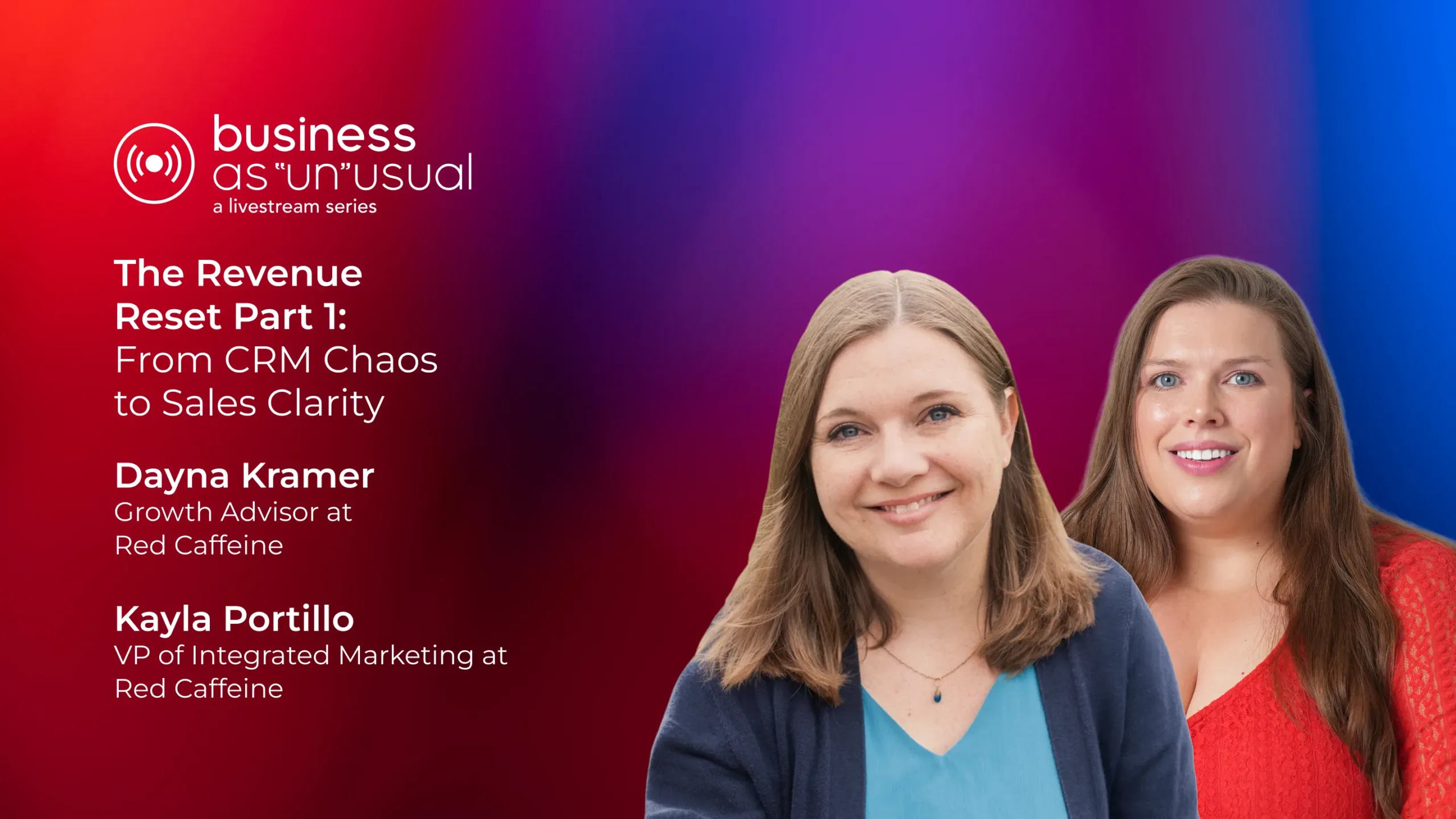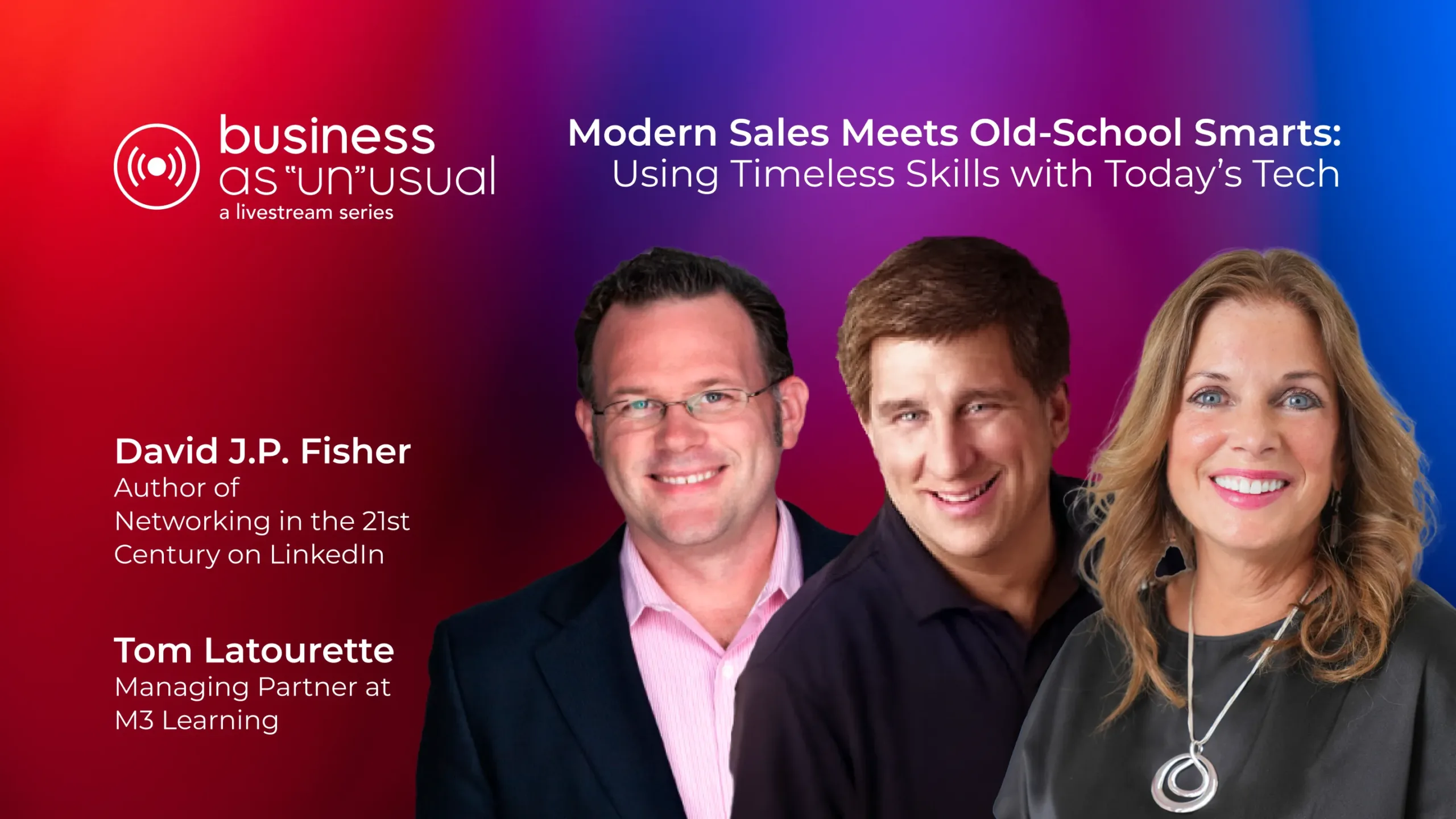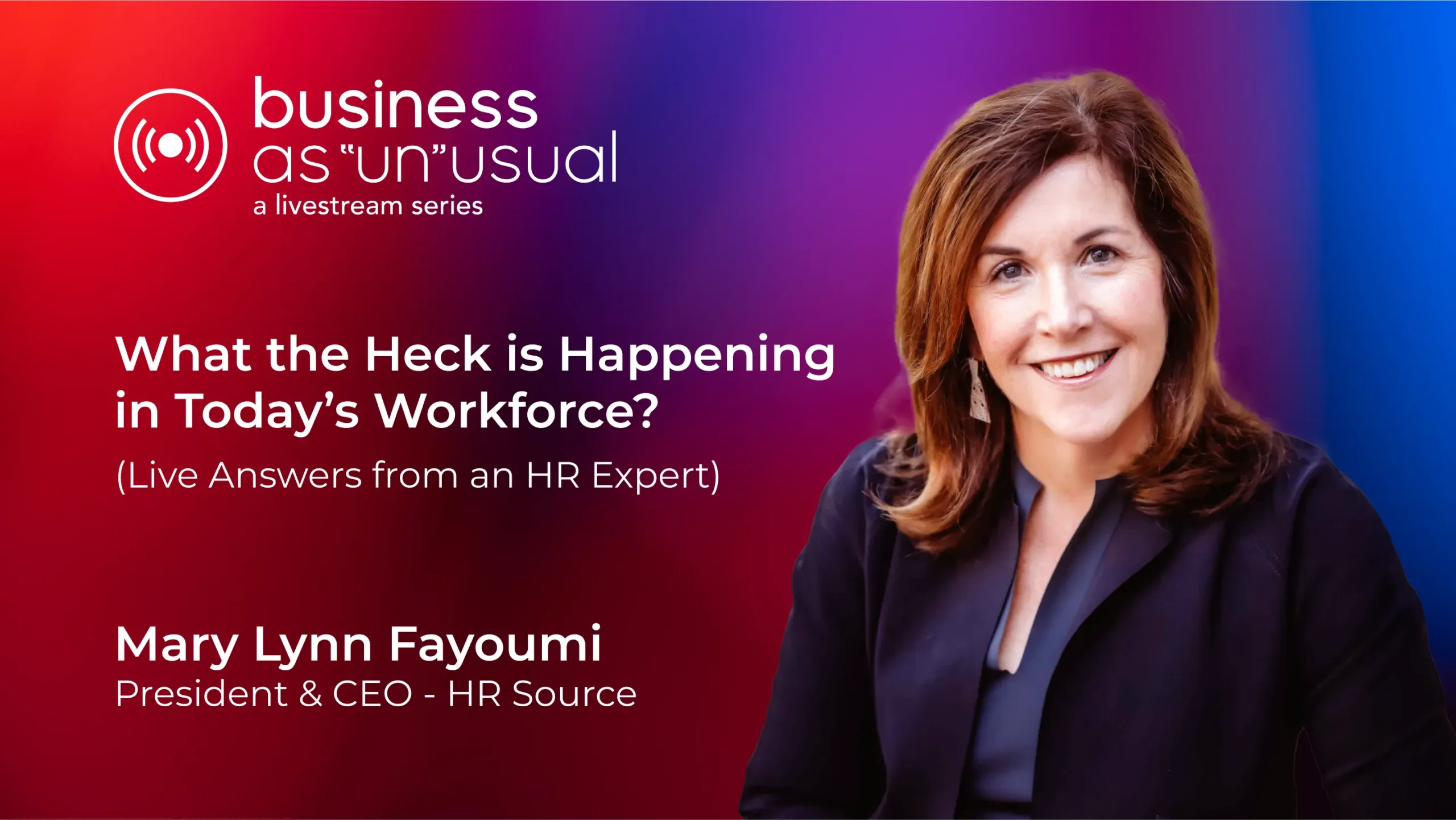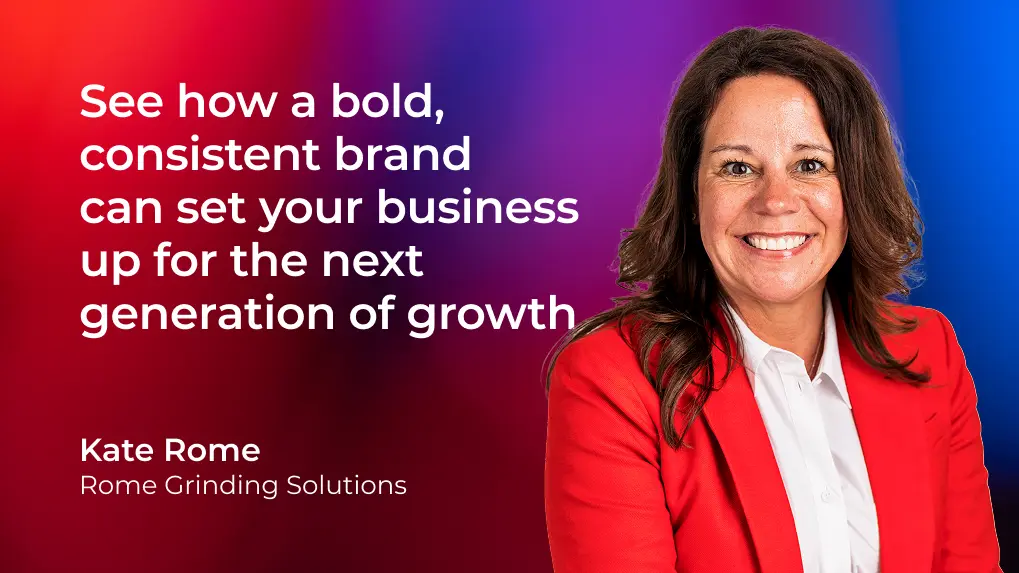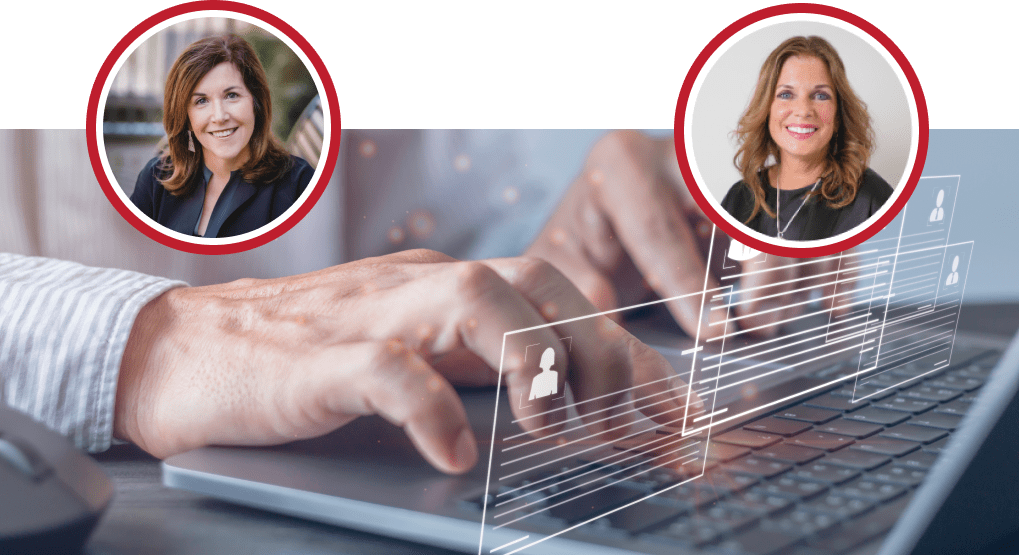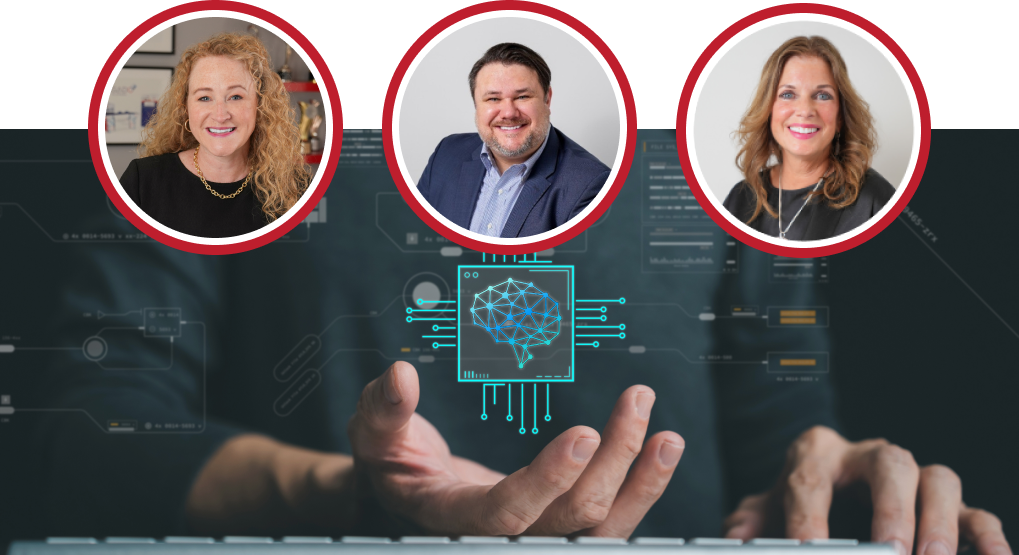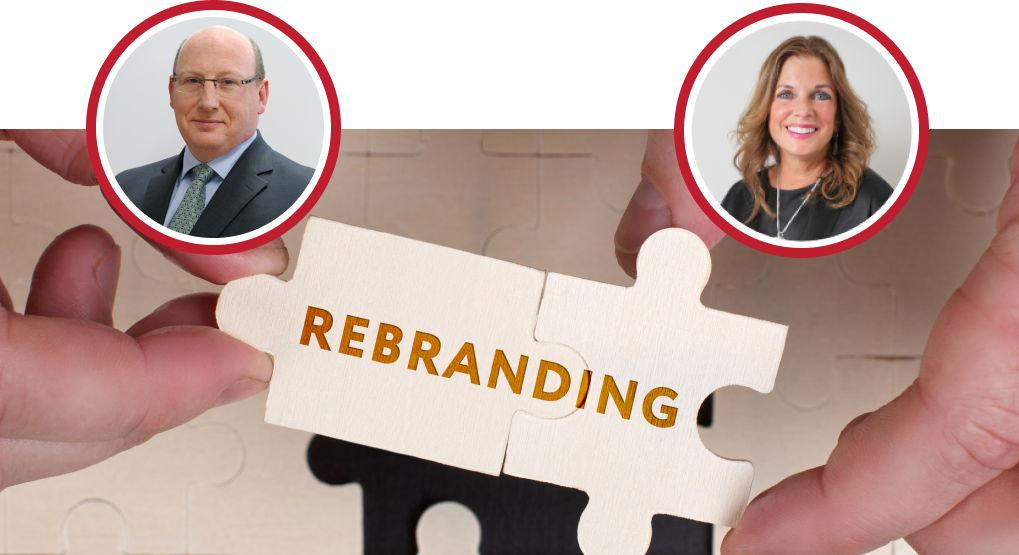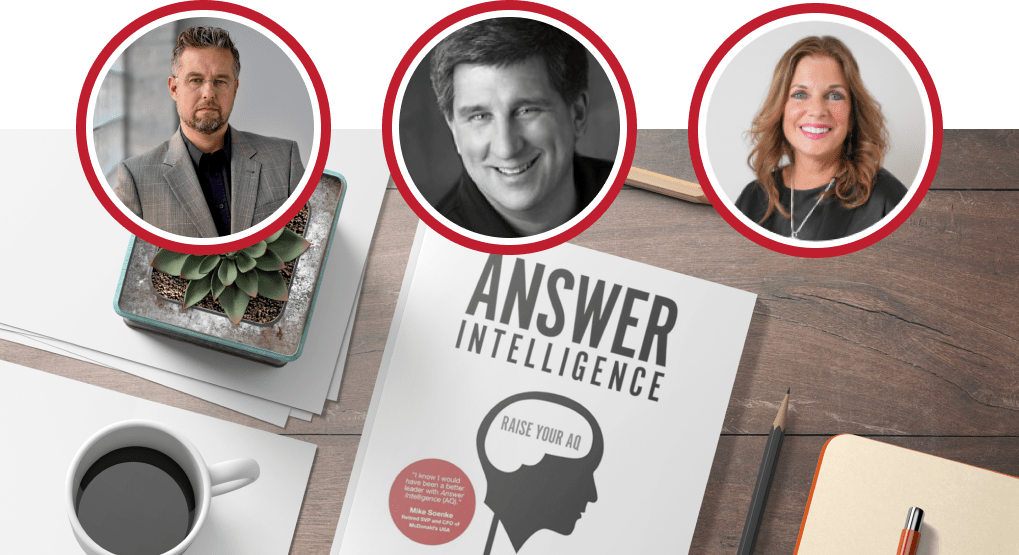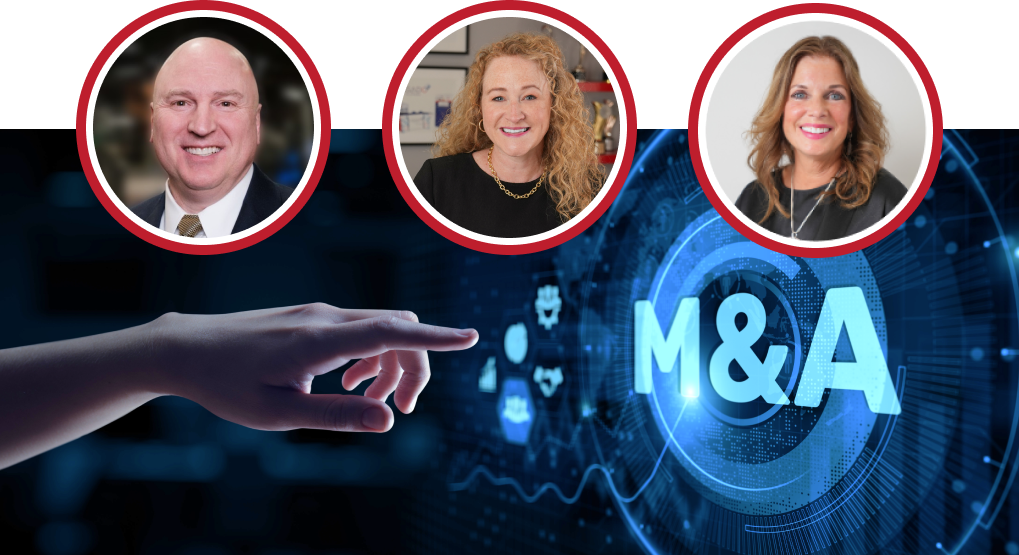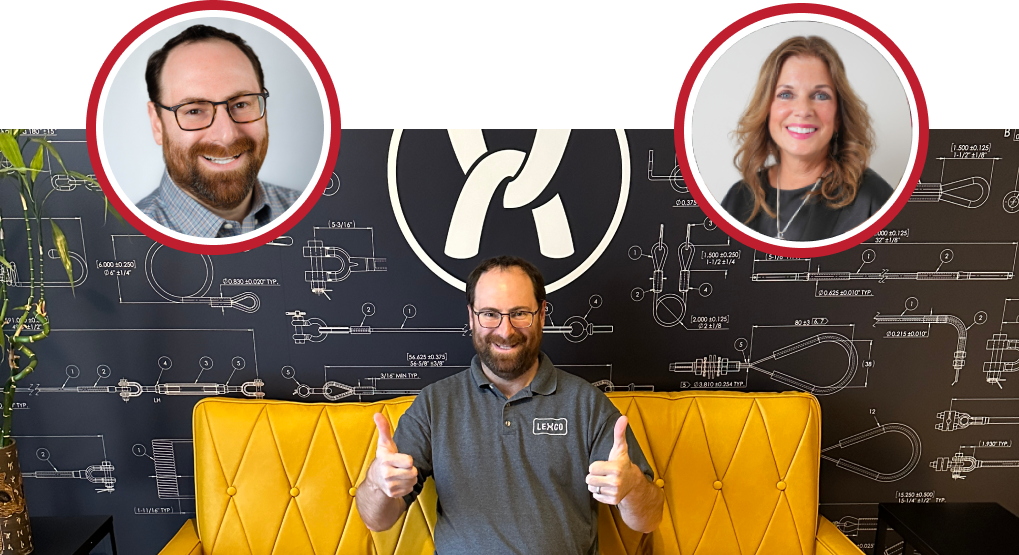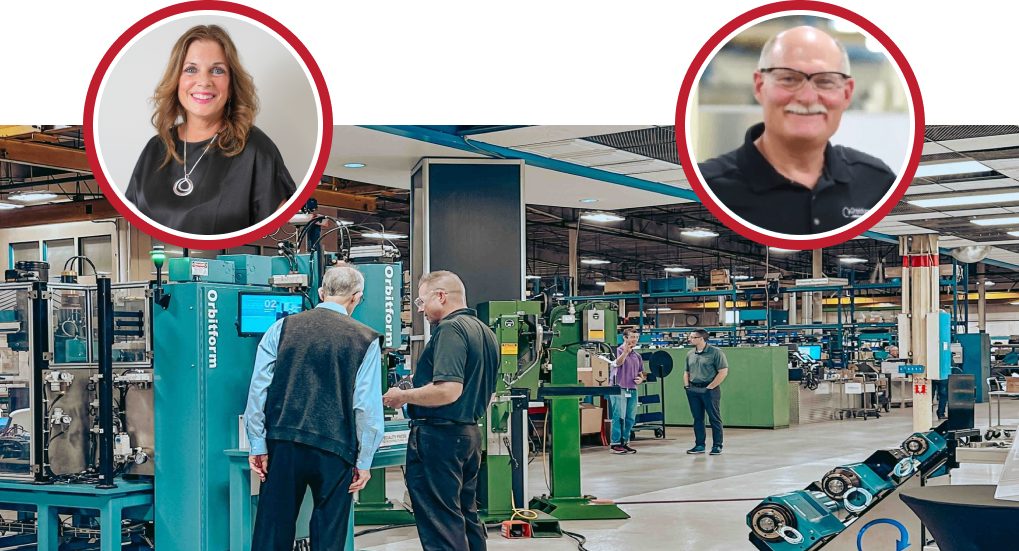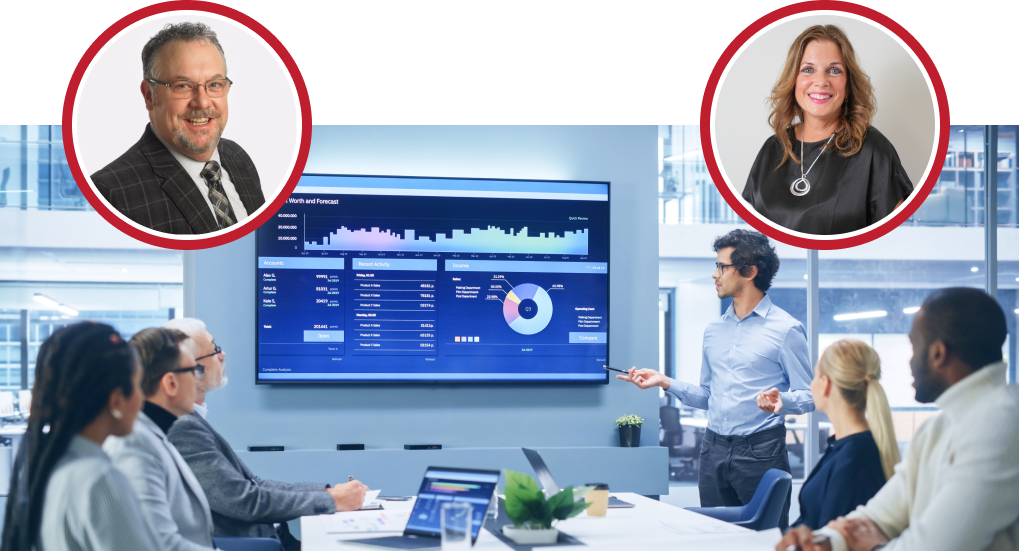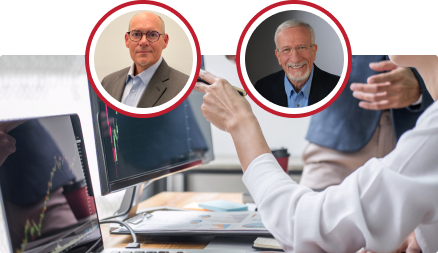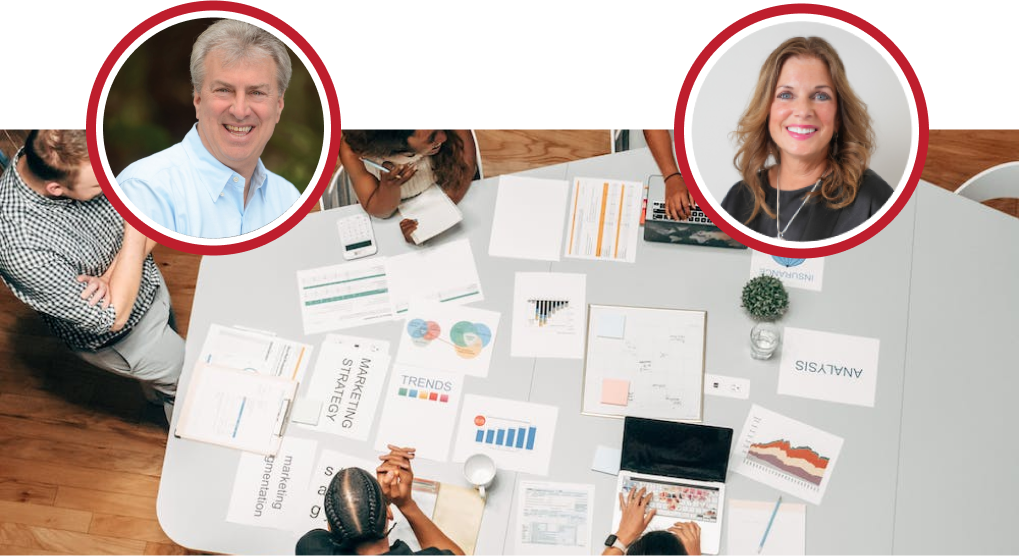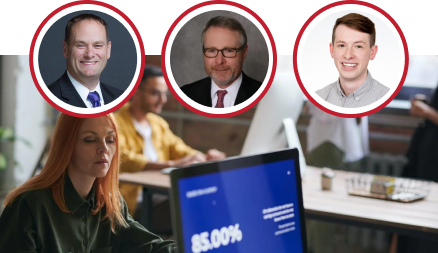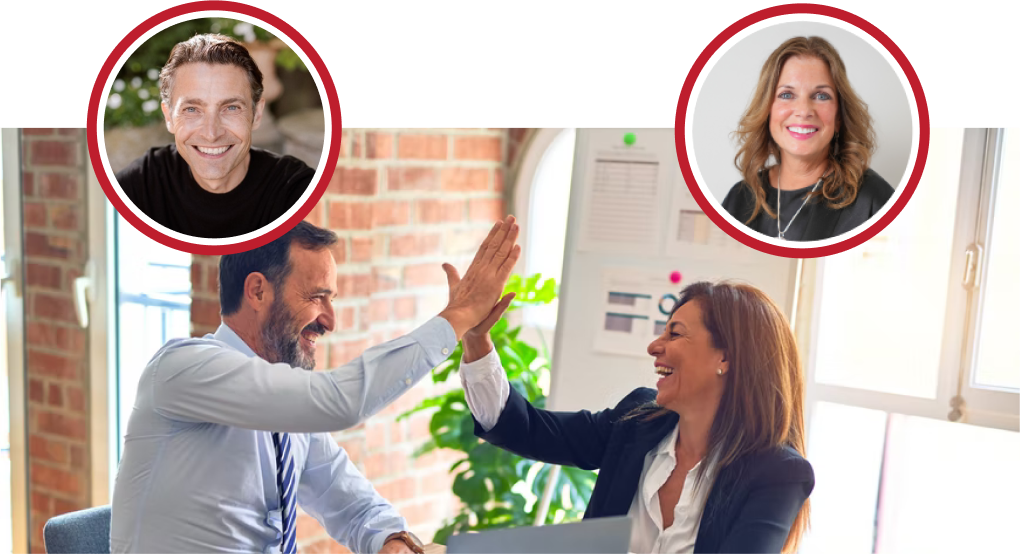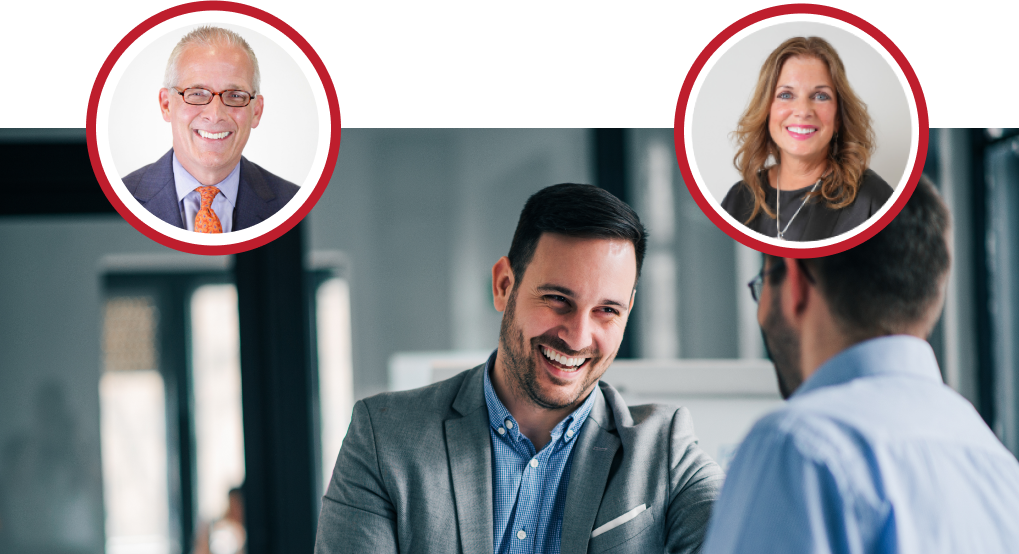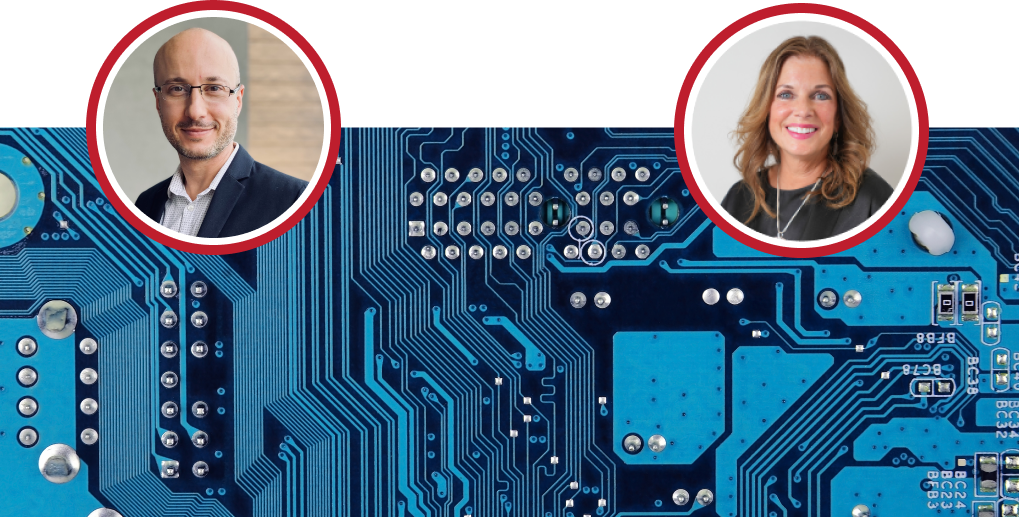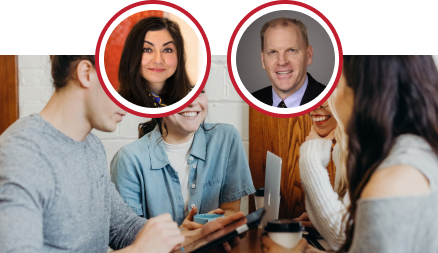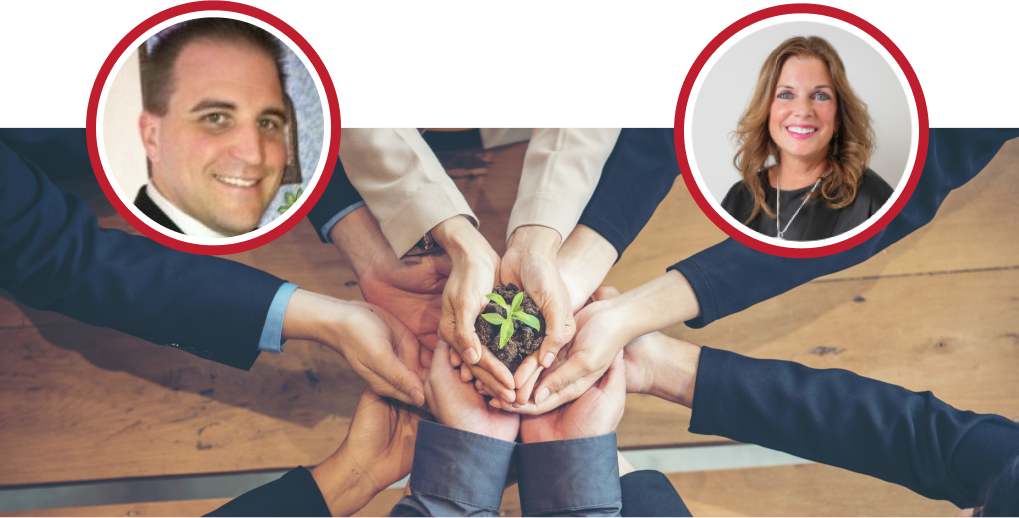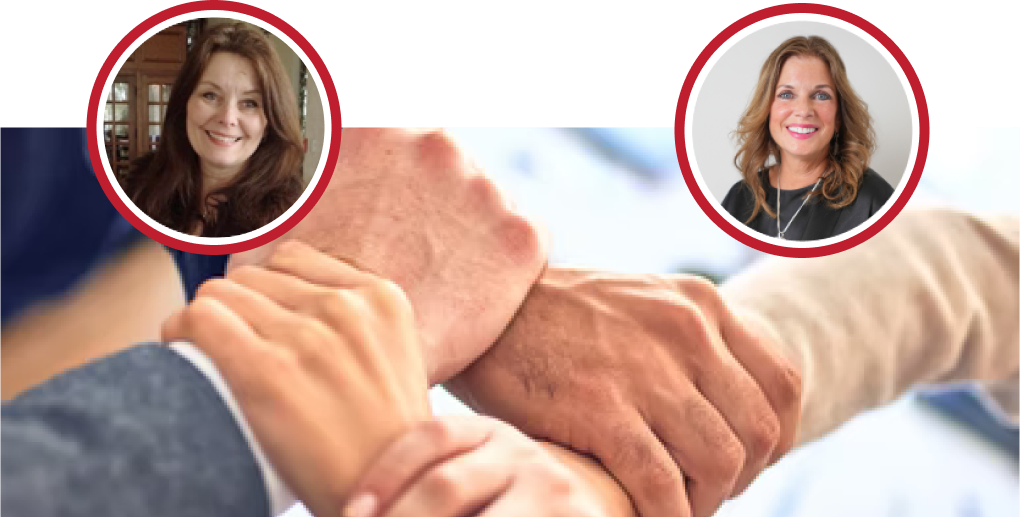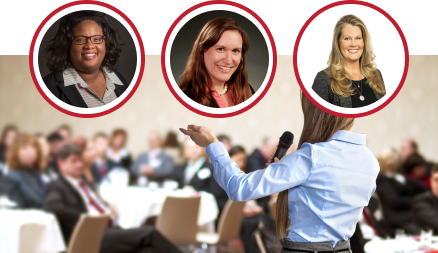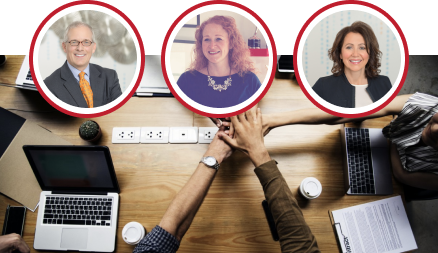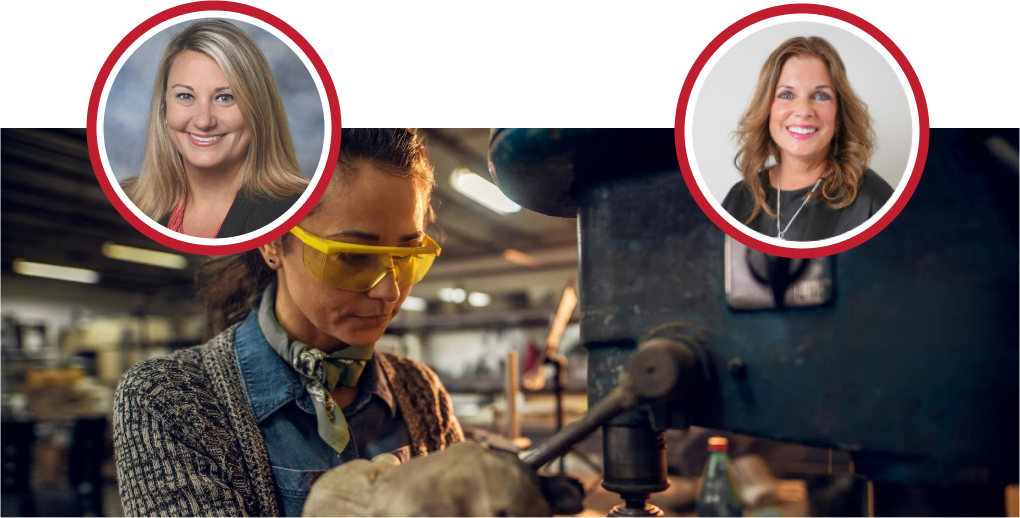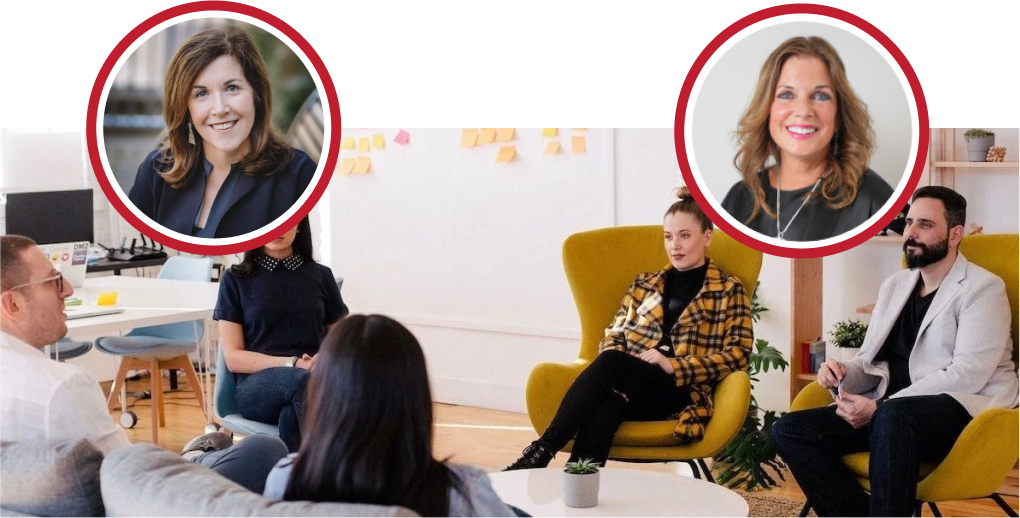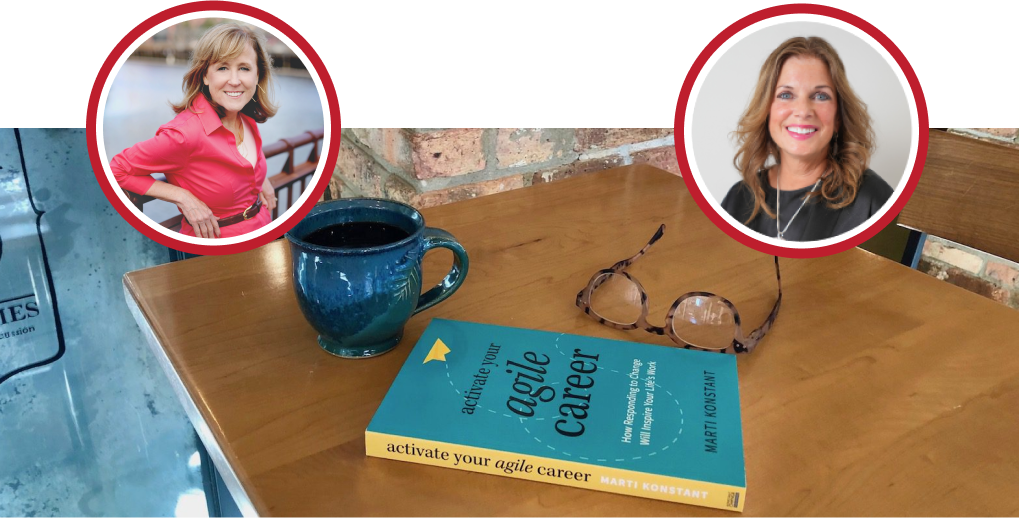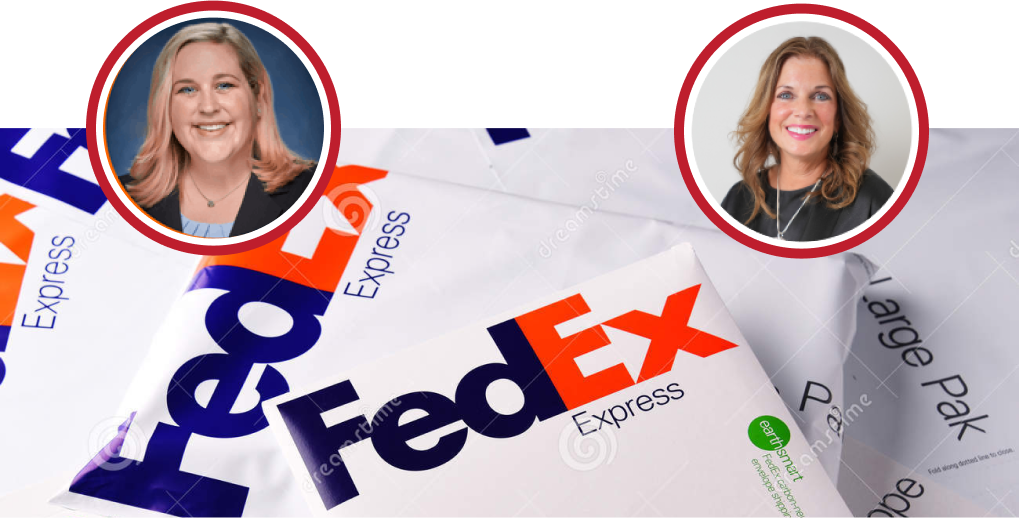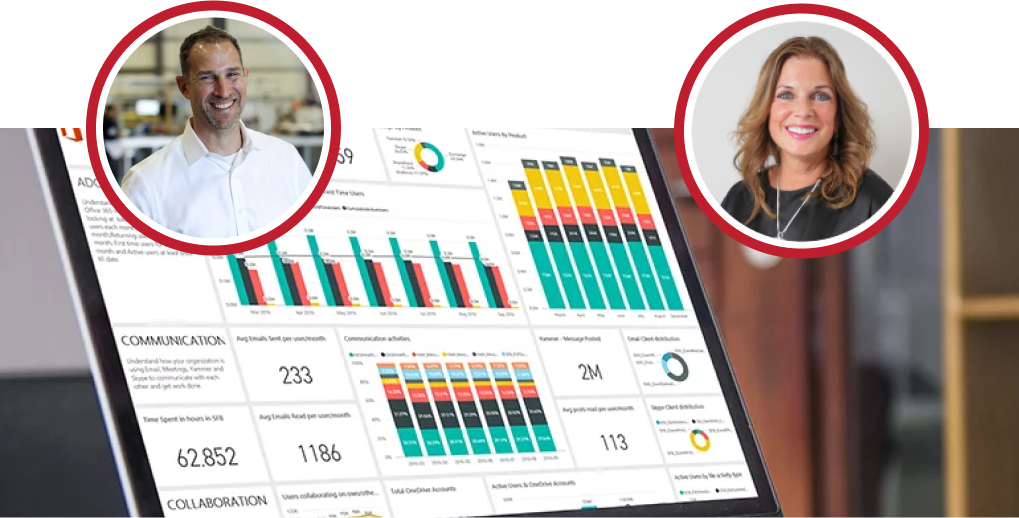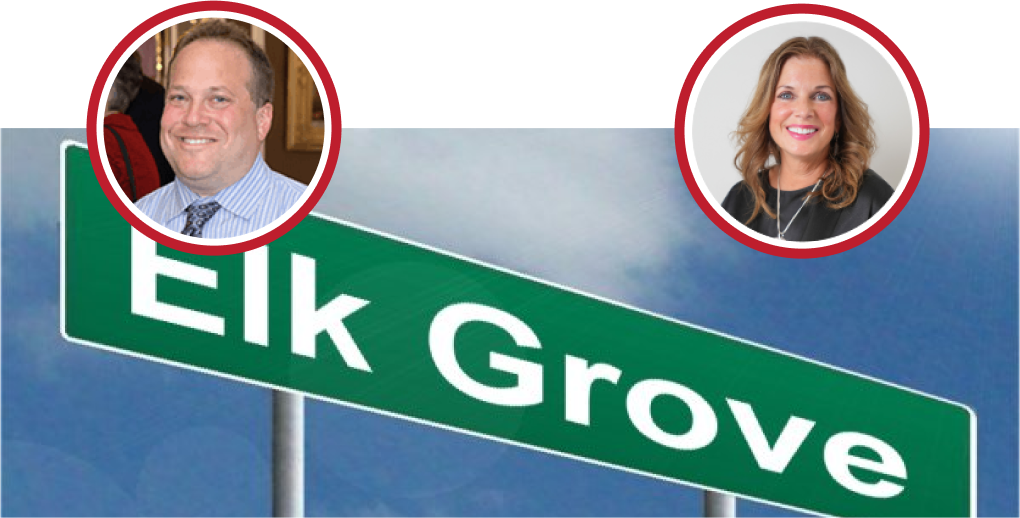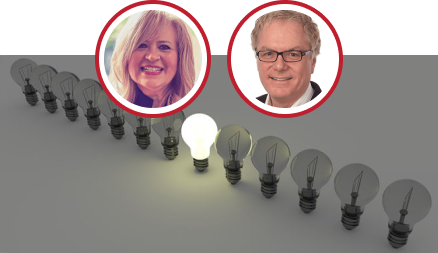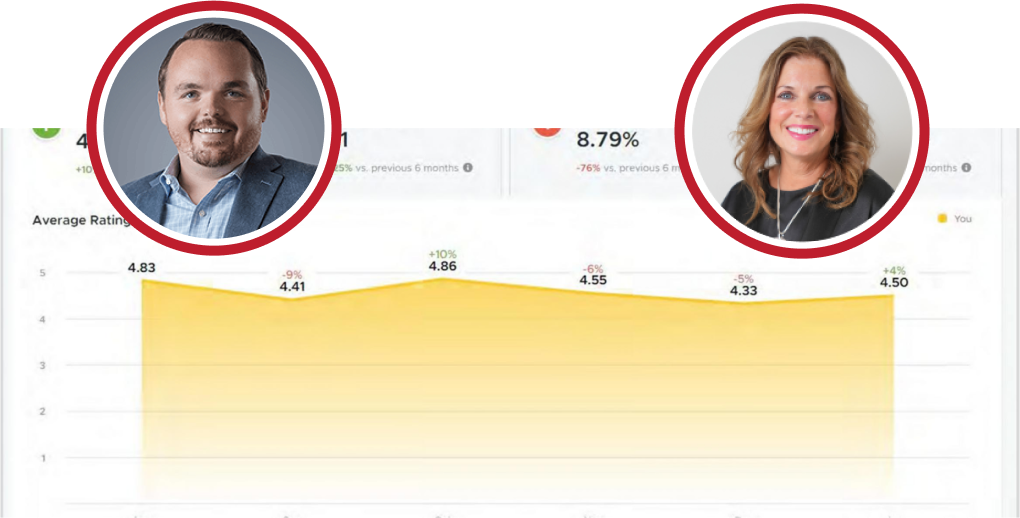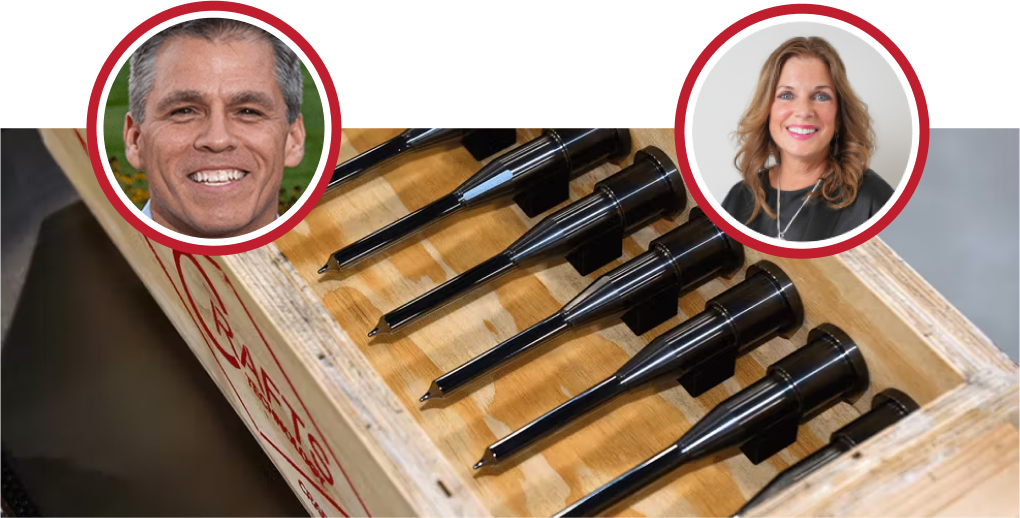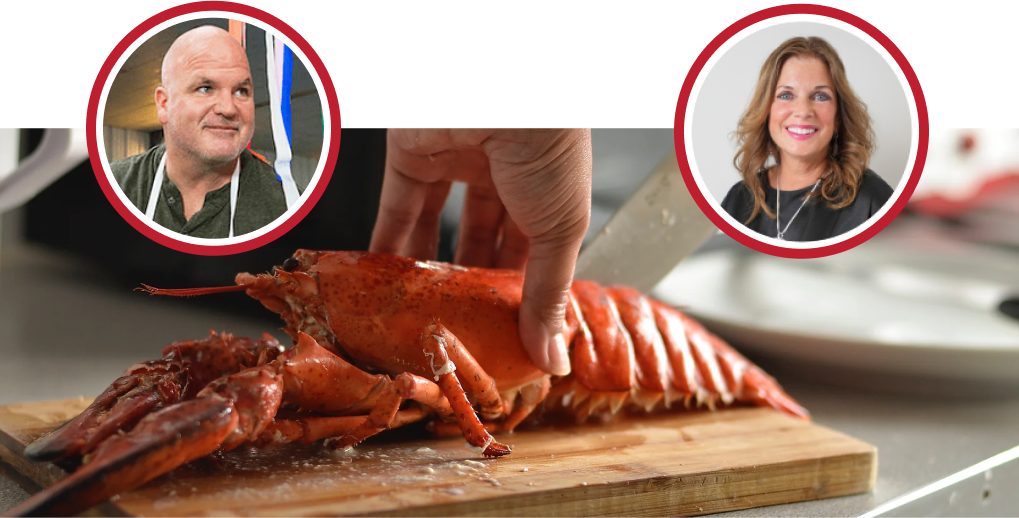Kathy: All right. Welcome to business as unusual. This is the live stream where we delve into the pressing issues and emerging trends shaping the business landscape. We’re going to get started in just a few minutes, but I just want to make it note that registration was really high for this event. So, tell us where you’re coming from if you’ve got any questions. Please feel free. To add them to the chat we’re going to try and get to all of them during today’s session. I’m Kathy Steele. I’m the CEO of Red Caffeine and your host today. And for those of you unfamiliar with red caffeine, we’re a growth consultancy, and we build and execute growth market plans for ambitious mid-market companies. Our service offering includes A fractional team that is led by a senior-level marketing exec. To enable a business to scale rapidly without having to hire a wide range of full-time staff members to move that growth plan. For those of you who attended last month’s session on customer research, today’s topic, the future of SEO, builds on how you can use that type of research in your online strategy. As search continues to trend towards a more user-centric and technically advanced approach, we need to really refocus our strategy. On building a road map that meets prospects in the very early stages of the purchase journey, and that’s something we talked about in great detail with our guests in January, Ryan. So today, I’m really excited to have Victor Lopez, Red, Caffeine’s resident search expert, join us. We’re going to dig into Victor’s deep expertise and we’re going to really talk at a high level about the foundation or the fundamentals of SEO at first. Then, we’re going to delve into the influence of AI. The most popular topics today are search behaviours and strategic content. Frameworks that we use here at Red Caffeine to engage and convert. Some attendees might be surprised that we’re still hearing from our prospects that their customers don’t find them online. So, Victor and I are hoping that this conversation is an invitation for those to really rethink. What do you know about SEO? Embrace its complexities and unlock the potential it holds for making genuine connections with your audience. So, let’s jump in. So, Victor, tell us a little bit about yourself and, you know, give us something interesting that’s not in your bio.
Victor: Uh, well, thank you, Kathy. I appreciate the invite and being here, you know. You know, I’ve been working on the web since the early days of the web, optimizing websites for years. But you know something? Not in my bio. I’m an avid traveller, so I am on a journey to visit all the major pyramids around the world. And you know, this past summer, I checked off Mexico and Guatemala. So I continue my journey S you know, so getting away from the screen there. But, you know, my day-to-day is focused on a search engine.
Kathy: Oh well, we definitely share that passion for travel. As you know, I’m currently in Mexico myself, so you know, so I will. I didn’t realize that there were so many pyramids here in Mexico. I have to make a note of that. My look at.
Victor: This. Yeah, we can talk offline about those, and I’ll give you some suggestions.
Kathy: Sounds good. All right, well, so let’s. Let’s start with, you know, kind of the basics. I think we always kind of like to start really at that macro level. Can you just? Provide the audience with an overview of search engine optimization.
Victor: Yeah, you know, that’s a great place to start because search engine authorization or SEO has really changed throughout the last, last 10 years, accelerated changed, you know, post-pandemic in, in the early days of SEO is really just about how many times can I put the keyword on this page. You know, even using. Ticks of, you know, we would hide keywords in white text in the background in the early days, right? But. As algorithms have become more advanced as AI has come into the forefront, SEO has really evolved. What we do here at Red Caffeine is focus on what we call the pillars of SEO. There are four pillars that SEO stands on, and every initiative needs to be guided back to one of those, and those are. Abbreviated by the acronym E. So, EE AT the first of which is the experience, and it is asked the question. Does your website’s content portray that you have experience in your field? Is your website doing a good job of showing your years of history in the field and the awards that you have won? Does your About Us page have a nice concrete story about who your business and your company are? So, really showing your experience right and companies that do that, brands that do that will have a better chance of ranking very well in Google search. Another of those pillars is expertise, which really asks the question. Are you an expert in your field? Because search engines like Google are really trying to put the experts on page one, right? And why do we care about being on page one? Well, upwards of 92% of all clicks happen on page one of a Google search, right? And out of those 90 percent, 70% of the clicks come in the first three search results. So that’s why being the expert is so important because you want to be one of those first few brands and websites that come up in search. So, one way that you can do that is by being. An expert, so it’s great to have a nice, beautiful-looking website. We have a good user experience, but at the end of the day, you want to make sure that your expertise is coming through in your content. Then we have the A-pillar, which is authoritativeness, which is your reputation online. Do others consider you to be an authority in the field? Are your authors reputable? And that’s when things like link-building come into play. Where do other websites have enough confidence in your own website to point their users to your website? Right. So those are those people who are the authority, and the field will always rank very well. And then the. The final pillar there that we have is trustworthiness is your website. Being trusted, is the data accurate? Is it reliable and not only about the content, but is your website reliable? Right? This is where technical SEO will come in. Play does. Do you have a fast website? Do you have a secure website? So, a lot of technical aspects go about being trustworthy, so that’s really what a modern SEO strategy looks at. It looks at your website in a holistic view so that it’s not only ranking one keyword or two keywords; it ranks up your entire website. And you’re a consistent presence on Page one, and that’s what we try to do here at Red Cafe. If we move over to the next slide, we can also talk about something that will come up later on, which is about intent and how search engines look at the intent of your keywords and understand that your keyword strategy is geared towards the right intent. If the keyword is informational. Understanding that you need to provide content that answers all these questions and provides a lot of information to your users. Is it a commercial intent? Somebody that’s mid-funnel in the marketing funnel who is looking for comparisons, right? Comparing yourself from 1 brand to another, comparing products in verticals. And then I think for our audience here, the ones that a lot of business owners will care about the transactional keywords, those are very low funnel. Keyword users who are ready to convert are ready to purchase your e-commerce. Ready to request a demo if you’re a SAS website. So understanding what those keywords are to be able to cater to that content is very important, and a navigational intent just means you know somebody who is looking for your website. So, is your website branded correctly? Search engines can guide users to your web page, so that’s what we call in Q the keyword intent. And then, if we go to the next slide, what we’ll see is the tools that we use, right? This is what a lot of people in our audience are probably used to when we talk about SEO, right? But these are more tools, and everything goes back to those pillars, right, like, for example, technical, SEO, it’s about the trustworthiness of your website. Do you have a reliable website? Right, the on-page side of SEO really talks about the experience and the expertise, and those are the tools that we use to prove that we’re experts that we’re in and we have experience in our field, and then the off-page SEO site that’s targeting that authoritativeness that builds links from reputable sources back to your website. So that is, these are the tools that we use in order to execute a modern SEO strategy that we focus on those pillars.
Kathy: So Victor, you know, it felt like the whole last whole of last year, 2023 was focused on GA4. Can you talk a little bit about it? Is there still a lingering impact that we should be thinking about? Where are we at now with GA4?
Victor: Yeah, Google Analytics four. Wow, that’s. That’s a hell of a topic to say. It was one of the biggest changes in analytics over the last decade. A lot of SEOs like me. I’ll be honest: we’re a little bit hesitant to go into Go Analytics just because we were so comfortable with the previous version, Go Analytics 3. But now that we’re in the middle of it and the transition. Have been executed, and everybody’s in Google Analytics, for we’re really starting to understand how power. It is because Go Analytics 4 really gives us a lot of insights into user engagement and how users are using your website. Just to give a brief example, you know, go Analytics 3 always gave us the number of sessions or the amount of time somebody would come to your website, but now they’ve created metrics like engagement sessions. So, they tell us, OK, out of these 15,000 sessions that came to your website. This month. Let’s say 11,000 actually engage with your website, so it actually gives you more metrics about the user behaviour of how users are using your website. So, it’s a lot more important metrics and a lot of more user metrics and also you know that that, that, that buzzword right AI machine learning that’s been incorporated into Google Analytics for. That allows us to identify trends a lot quicker. It allows us to get insights based on that data that maybe we didn’t have insights into before. We’re able to do that now with the machine learning of go analytics, and what we’ve learned is that as more data comes. It gets more advanced, it keeps learning, and it keeps giving you more data. So, quarter after quarter, year after year, it’s just going to get stronger. It’s going to get stronger; it’s going to be a more powerful tool as we move on.
Kathy: Yeah, I mean, I appreciate that. I feel like. You know, there’s been a lot of hype around some vanity metrics, and going back to what we’ve, you know, started our discussion within terms of creating a customer prospect Center. Approach online, I think, really getting more meaningful data and input through our analytics programs and our measurements. It is going to help us refine our campaigns and do a much better job of meeting that customer with content and information that’s really relevant to them in terms of. Hey, I think you cited some really good, you know, samples of analogies when we were prepping for this conversation. Can you talk a little bit deeper about what is happening with AI and what we’re seeing? I mean, I think we’re still at a very early stage. That, of course. But what are we seeing in terms of this AI and SEO revolution?
Victor: Yeah, you know, so particularly the, the release of chat BT in 2022 and its rise to prominence in 2023 brought AI to the mainstream right. It’s a lot of us that for a lot of people, that was the first time they heard about AI and this kind of chatbots. Going to these chatbots, typing in a question, and getting an answer became very popular, and it was seen as a revolution in space. But the reality is AI and machine learning have been used in SEO for a long time now. Back when Google first incorporated AI. Into their algorithm back in 2015, with something called rank brain, and they’ve been using it to rank websites properly and understand users. Content, you know, understanding natural language and understanding the topics that you’re writing about. You know, as simple as they may sound, we gave. We were talking about this during our prep session, right? The understanding of the word and the word or that in the past you would get the same results. Suppose you had the word and right, like if you had the word orange and bite. To go right, you would just get orange bicycles right now. You might get some definitions of the colour orange and bicycles because you’re looking at different results. So AI is being used by users in space to try to get answers to their questions, and sea and search engines are adapting to it by incorporating it. Get into their search engines as well. For example, Bing has incorporated ChatGPT into their functionality. Google has been testing this platform that we call S GE or search-generated experience that’s still in the testing phases that they haven’t released to the public. But in some cases, it’s being used on mobile devices, right? If you use Google search on your mobile phone right now, you may get a little AI experiment that’s trying to answer the question. So, search engines are adapting to that new user behaviour. But the other day, they have used it in their algorithms and the search algorithms for a long time. So, SEO’s like myself, you know, understand how that’s being used in their algorithms, and we then use that to optimize web pages accordingly.
Kathy: Yeah. And so, you mentioned SG, which we thought there was going to be a larger release from Google this year. Talk a little bit about what’s truly going on.
Victor: Yeah. So, SE initially had a, you know, in Google Labs, which is like their experimental side had an end date of December 2023, and we were all expecting it to be released to the wider public towards the end of the year. But what we ended up finding out is instead of releasing it. They took away the kind of the end date and just left it indefinitely in the test. This is not surprising because you know one of my teammates, Andrew, mentioned this, too. To me, he said, you know, one of the problems with SSE was that it’s still learning, and half the time, it would still give the wrong answer. So, the confidence wasn’t there, right? So, it still has a lot of learning. To do, but as Google does right, what they’re doing is they’ll take those test results and those results from there and they’ll incorporate certain features into search results. So, what I expect is what we’ll see in the future is instead of getting a whole new experience, we’re probably going to get. Those features are incorporated into the standard search, but like I was mentioning in mobile phones right now, they’re kind of testing that out, right? Where if you ask a question on your Google browser on your mobile phone, you might be willing to select a few that the AI tries to give you the answer right away.
Kathy: OK. Yeah, I. You know, I think that’s an important thing to note with all this. The influx of incredibly advancing technology. It’s still we’re. Still, in such a learning process, when such an experimental phase, I mean, if Google thinks they’re going to do something and then they roll it back, or they do it in a way that you know the rest of us are following suit. We’re just trying things. Trying to get, you know, really good things from these tools. Sometimes, you get really good things from these tools. And other times.
Victor: Exactly. So in, you know, my thought process has always been to cater to your users and your audience and let the search engines. That to you and always be the thought leader. And if you are doing a good job of being that thought leader being the expert, search engines will want to put you in front of their audiences. So instead of adapting to them, have them adapt to you.
Kathy: I think that’s a perfect segue to our next theme that we wanted to cover in terms of content strategy and how we’re using SEO and SEO best practices. So, we really talked a lot about it. Kind of. The B2B buying cycle, buying personas, how understanding your customers and building that strategy to meet them where they are in that process impact your SEO plan, and you know, at Red Caffeine, we love our, you know, planning and content cards. Can you talk a little bit about how we think about it? Content at that high level and then how that you know really impacts the SEO strategy. So, it underpins our content strategy.
Victor: Yeah. And, you know, this goes back to, you know, what we said at the beginning, right, our pillars. And your content strategy goes around proving your experience and your expertise. One of the tools that we have in order to prove that expertise is what we call our content clusters and our pillar content right where we select a three or four or up to five, you know. The main topic is ideas that we really want to focus on as a website, and we want to improve our expertise there. We will produce an A, you know, long-form piece of content that’s really the pillar or the staple piece of content. And then we will support that with subtopics and really go in-depth in these sub subtopics so that every area of the topic is being covered, and then through these content calendars, we’re able to really lay out a plan that says, you know, this month we’re going to cover this aspect of this topic and this aspect of this topic and continue to build that that, that. Expertise continues to research on a monthly basis to see what those new trending topics are and ensure that we’re answering the questions that the audience is looking for and understanding that you know every piece of content is not going to cater to every person, but we must cover it so that we’re. Covering that topic in its entirety so that there’s no there’s no gaps in that.
Kathy: So, you’re saying a little bit more like go deep versus have this, we do everything for everyone. I feel like we’re hearing a lot about niches and really being domain experts and how, like we say, three to five can you do 7 or 10 content? Areas or awesome?
Victor: Yes, you know we are. Say 3:00 to 5:00, because that’s what really, you know, we also understand that, you know, that everything has to be part of your marketing mix. And then there’s other channels and there’s budgets that are. Involved, but in an ideal scenario, you know, you would highlight every major topic that your website needs to cover, but you also don’t want to get away too much and expand too much and something unrelated to your website, right? We do so as long as the topic area makes sense for your audience. The audience is looking for it. That’s truly what matters, right? Like I said, let’s cater to your users. Don’t cater to a search engine. Understand your audience, understand those personas, and cater that content to that audience.
Kathy: And we’ve got a question, and I don’t know exactly if this fits in here, but we’re talking about backlinking I. Mean is this? Something that we the more the merrier the about, you know, the more we got, the better. Can you talk a little bit about backlinking and this type of content strategy and in the construct to what we’re saying here in terms of? Fuller content. For content clusters for domain expertise.
Victor: Yeah, you know I will. You know, the leader of our link-building team, Jason, always tells me this right: you know the good link-building strategy always starts with good content, right? It is providing those natural backlinks that people find useful content on the web that will say hey, these are the. Experts in their field let me send my audience to that right, and backlinking is the backbone of SEO. It gives you authority on the web, right? It’s it. It tells others that you are. Expert in the field, and there is such a thing as the wrong back. Links can create a negative effect, right? If you’re just getting junk backlinks and your part of these link networks that are just providing you with bad links, they can have a negative effect on your website. So, what you want to do is you. You want to find reputable websites to point back to your website. But, you know, part of a link-building strategy is doing that outreach and going out to websites that are an authority in their field and having them point back to your website, but also the second part of that strategy is creating very enticing content to where users will naturally want to point to. And other web admins will want to point it out. Their users go back to your website.
Kathy: Yeah. I mean, I think about it like our PR strategy. I mean, you can say how good you are at something, but when somebody else endorses you, that really. You know, it takes that third-party endorsement. It takes you, or pure endorsement that takes your confidence level to the next level. I think that it feels like it’s really similar and relatable to how you’d want to. Think about a backlinking strategy.
Victor: Exactly because it’s part of the web. Since its early days, it has always been, you know, a popularity contest as well, right? So, the more votes that you have, and each backlink is a vote of confidence, the more authoritative you are. Be in space.
Kathy: Right, right. All right. Well, we’ve talked about it a little bit, but it does segue us into, you know, some of the next sections that we want to cover on user experience and search behaviour. So again, thinking about our customers, our prospects talk a little bit about answer engine optimization; how does it differ from traditional SEO?
Victor: So, uh, you know, I think answer and engine optimization is something that goes into an SEO strategy. So, what we call an AEO is really about targeting questions and formatting your pages and your FAQs to a question-and-answer format. So there is a long-tail question that’s being asked, and then you have a concise answer after it. So, while an SEO strategy looks at A at building your expertise and your authoritativeness or your content, an AEO strategy is part of that where we are just trying to answer trending questions and show our expertise. These are through the answer and the question-and-answer process. So, it’s more dedicated to instead of covering a topic in broad and long-form content, it’s about what’s the question, what’s the answer?
Kathy: Right, right. I mean, I think we’re. All are getting so accustomed to it quickly. Information we really want not to have to work hard to get an answer for something, so I think that really feeds into the user expectation and the experience that we want in our web searches online. So I think. This is where. Zero-click searches, you know, become important. Talk a little bit about zero-click searches and why. They’re increasing that, and that’s really what it means because you can’t really measure a click if you don’t. Suppose you get what you need when it’s in a zero-click search. So, tell us a little bit about it. This is.
Victor: Uh, yeah, yeah. Zero-click search. I’ve talked to many business owners who are frustrated by this right or a lot of web admins. They get frustrated by this because, as we’re seeing here on the screen, a zero-click search is when somebody types in a question or a query into a browser like Google Search. And instead of being guided to a website. At the top, you get the answer to your question, right? So here we asked the question, what percentage of users use Google search? We see that the search engine provided us with the right answer, which tells us that about 81% of users are using Google Search. What does this do? The user got the answer to their question. Therefore, they’re probably not going to click into the listing in the search result because they’ve got their answer. But. I think as a brand, we need to, and as companies, we need to learn to embrace this. One of our SEO strategies and one of my mentors in this business, Mauricio, the way he likes to look at it, is saying you know, we have to understand the user intent and ask ourselves if a user is typing this type of question where they’re really looking for a website to take a look at or they were just looking for the answer. And so, as a brand, we have to embrace that and search for these questions that are being asked and you know, be the brand and the company that answers this question. So that when a user consistently sees that we’re the ones answering these questions, it builds confidence in your brand. Right. One analogy that I like to make right is this is a kind of payment for SEO; right in, in paid media, you pay Google and search engines in dollars to be able to get your placement in SEO. We pay them with information for the users and if you’re a good partner to the search engine and you’re. Providing them the information that they need to give to their users. Then, for the queries that are more complicated than they are, you do need in-depth. Content search engines will lead them to those rights, and at the end of the day, that’s really what we care about. We care about those more complicated questions that are going to take users who are really interested in our product offerings and take them, take them to our website and then provide them a journey through our website to convert to either buy a product or buy a service that we’re offering. So, it’s really understanding the intent around these queries and seeing which ones are really transactional and that we really care about driving users. And which of these are just questions that people are looking for? The answer to that, you know, this question may be asked by a college student. And do we really, you know, care if that college student goes to our website? If they’re just looking for a quick answer, right? What we care about is that the decision makers from a company and A and a brand are the ones that. And have more complicated questions with a guided tour through our website.
Kathy: I mean, I definitely love the idea of quality versus quantity in so many. And I think that the complexity online. There are so many types of users, so many levels of sophistication, and expectations of this self-service. Whether you know businesses have a more consultative approach to their sales process. I think we, a lot of times, just forget what they’re doing, you know, well before they’ve ever. I chatted with you or completed an RFQ. It’s what they’re doing in that search process. The way in advance of them actually converting the download of your White paper or what have you.
Victor: Exactly. And you know, and that’s what part of what we do right at Red Caffeine is, we provide you concrete keyword research and strategy that says these are the informational keywords that really, you’re just going to write informational content of that might be eligible for zero-click search and versus these are the pool of keywords that we’re really going to drive. Engagement and RFQs or purchases from your website.
Kathy: Right. So, talk a little. A bit about content because I mean it. It’s like a race to, I mean, it’s so challenging, and we’re seeing this influx of AI-generated content, and there’s, you know, you know, truly offered expertise content. How is this going to impact you? SEO and search longer term.
Victor: So, one thing is searching engines themselves are going to adapt to this new world, right? Of being overflowing with content. And like we saw at the start, there’s that E experience, right? So, an AI search, chatbot, or content generator. They can help you write a piece of content, and they can help Polish up a piece of content. To show expertise, but what they can’t do is show your experience. Right. So always having somebody within the company that’s guiding that content, that’s providing that experience, and giving those insights will always be very powerful to content as well. So, I think we get flooded with a lot of AI-generated content, which I think a lot of us have been frustrated with over the last year. It’s always important to remember that the websites and the companies that show their experience through that content are what’s going to really do the best and, you know, use AI tools. Just as tools to improve your writing, but not to guide your strategy.
Kathy: So. Agree. I mean, I. Think we’ve been using lots. Of tools for years, but this is really accelerating our ability to create content in fast-track research and things like that. But it doesn’t solve providing good original content and having that domain or knowledge base in terms of. Using old content, though, talk a little bit about, you know, what do we do in terms of, like, if we’ve got existing content and it’s just. It’s still got. A lot of great cores to it. How important is it to look back at something? Maybe you created it three years ago and refreshed that type of content.
Victor: I think it’s always important to refresh your content if it’s going to be beneficial to the user. Always be updated. Always be updating statistics to newer statistics, always keeping it.
Kathy: OK.
Victor: Fresh so that it’s useful to the audience right there. There are going to be pieces of Evergreen content that can just live on your website, and you know, will always be relative. But you always want to be looking at every piece of content that’s on your website and ensuring that it’s as useful as possible to your current audience. Maybe. Maybe in the next three years, you’ve changed who you’re targeting, so you want to refresh that content to target that new audience. But one thing that you don’t want to do is just set it and forget it, right? It’s one. It’s one thing to look at a piece of content and say, you know what, it’s still really relative. We don’t need to adjust anything then. And oh, we wrote this, and we just forgot about it. So, I think you always want to be refreshing content where it makes sense. You always want to be updating content where it makes sense. You always, for example, a blog; if a piece of content is no longer really related to the business or it is no longer something that is being offered, then you may want to prune it. From your website right you because search engines always want to see that you’re maintaining your pages, so refreshing is a very important signal to these search engines.
Kathy: OK. Yeah, I think that this falls right in line with how we think about doing that content. It ought to see what we currently have to work with and then be able to link, you know, new content to older content, but not forgetting to look at that older content and making sure like it didn’t say in 2013 or you know, unless it really made sense to say in 2013. So, really, make sure that you’re thinking about it. Updating stats and updating the year that it was created and those types.
Victor: Yeah, exactly. Also, updating just the style of the writing could be very important, right? with AI and TAPBOTS and voice search. Having your content be more conversational is also very important, so in, you know, before 20/20, it was a lot, maybe just bulleted lists that were being used, and so it’s always important to also update the language that’s within that content. So that’s speaking to the modern audience. So that’s also important as well.
Kathy: Yeah, that makes sense, you know, I do feel like answering questions and really thinking about, you know, how I always love to create content where it’s really easy to skim versus read entirely. But I think we have to kind of even rethink the bulleted lists and how we’re using a question versus an article. Bullets below. All right let’s switch gears and talk a little bit about video. I mean, the video is huge. It is really, you know, integral to a content strategy; talk a little bit about how we can use video and how we develop an effective video SEO strategy.
Victor: Yeah. And I think part of that is understanding just the user behaviour and how much video media is consumed on the modern Internet, right? A couple of years ago, it was about 65%. I think up to 80% of the content on the web is video media, so creating engaging videos for your website or even on a YouTube channel is very important for your brand, and creating a Strat just like you would with your content. Creating a strategy. Around topics that will cater to your audience is very important, so not just making a video for the sake of making a video, but with a strategy behind it of something that you’re trying to incorporate to make it more engaging. You know, from an SEO and statistics point of view, search engines are measured. During the engagement of your website, having video and media incorporated into the website can help you really up those engagement numbers as well and can help you in the long term.
Kathy: So again, I’m going to take you to tell us about really thinking about hosting video content on platforms like YouTube versus actually hosting video content on your web page. Talk a little bit about, you know, how you should think about where you’re where you’re adding your content or video content.
Victor: Yes, because there’s SEO. That’s a great question because there is SEO around YouTube, right? For example, optimizing your videos for better rankings within YouTube, coming up to that YouTube audience, and building that audio. This is great to have because YouTube is one of the leading search engines as well, but it’s also taking that and incorporating it into your website to go back to our pillars, right? Providing video media to help prove your expertise, right? If you’re selling a product. Having videos of those products and how they’re used on web pages can be very beneficial. Rather than having them off-site on a YouTube channel, right?
Kathy: Yeah, I don’t. Feel like people always click through from YouTube to your website, unless there’s something really valuable on your website that you lean into in that YouTube video. So I feel like there’s probably a strategy for hosting it on YouTube just for that greater brand awareness and then. You know, using video content in some way, shape, or form on your website as well.
Victor: Yeah, I always encourage our clients that if they do have a YouTube channel, to Find strategic places for those YouTube videos and embed them into their website as well. There are some technical things that we can do in the back end with things that we call structured data to allow search engines to understand. OK, this video that’s on YouTube is linked to this web page and guides the user from that YouTube within. Church into the web page itself, where we could control that user journey. So, there’s definitely you can use your active YouTube channels to improve your current website and your current strategy on your website.
Kathy: OK. Well then, one last question: transcripts. I mean, I think we’re seeing just this real ease of transcript creation through the use of AI, some video conferencing, and everything seems to be able to create a pretty good transcript, I mean. I’m not 100% sure you still would want to add it on, but what’s your view on including transcripts alongside video content?
Victor: I think it’s very important, and it also has an SEO strategic value to it, right, because the search engine bot will read through those transcripts and have a better understanding of what that video is and any keywords that are found within that video transcript will help the keyword relevance of that page and. Help them search and understand how to rank you better. So, I am pro transcripts on videos. It is definitely very helpful to have those. Taking advantage of, for example, YouTube automatically creating these transcripts and embedding the YouTube video into your website is a great way to take advantage of that right where it doesn’t cost you anything because YouTube is already doing it.
Kathy: Yeah, I think the only thing I would caution against is, in my experience, like, I feel like sometimes it spells a name wrong or doesn’t capitalize things. So just, you know, doing some or taking some time to edit those transcript content that trans. Clips from video content I. Think about how it really goes.
Victor: And it’s like anything, right? It’s a tool. So we always want to make sure that we’re using it as a tool and not just that we just do not set it and forget it. So that’s a great point there, Kathy.
Kathy: Yeah, well, definitely I’ve, you know, used transcripts from our BU’s, and I tell you, just even over the last three years, the quality of output of AI versus where it was three years ago is. It is staggering, but it’s definitely still not perfect. In the term in. In terms of thinking about the future, where do you see the SEO landscape going? What? Where are some of the tools that businesses can use to stay ahead?
Victor: You know, where there’s a lot of tools that we use and that that we recommend that you know, we’ve talked about Google Analytics for and continuing to use Google Analytics to understand your audience using Google Search Console to understand how users are getting to your website using Google Trend. Hands-on to understand what keywords are trending and always keep your keyword strategy refreshed. We recommend you refresh that keyword strategy at least twice a year or after any major algorithm update by Google. There’s a lot of, you know, embracing AI tools like ChatGPT to help you do analysis. And really do a lot of data mining. Uh, use third-party tools like Semrush and AH refs that really help you understand your website from a technical perspective and a content perspective. So, continue to use those tools and stay in the forefront of the tools that look a little bit overwhelming. You could always come to us at, you know, at Red Caffeine as the experts, and we can help you understand the tools that you’re using a little bit better.
Kathy: Well, what about? AI and technological advances like, you know, there is talk of AI killing everything, taking people’s jobs. So where do you see? That impacts the future outlook for SEO.
Victor: You know, I’ve been hearing that SEO is dead. You know, I think every year since I’ve been in this business. So. But I do think that we do need to take AI seriously, and we have to understand how users are going to be using those AI tools and cater to those tools. But like I said at the beginning. This always focuses on. The user is right because that’s who matters. So if the user is, if you’re always catering to your audience and your users, and you’re worrying about making improvements to your website and your content for your users. AI and search engines will adapt to you and will always put you at the forefront. So emo, race it. Embrace it. The AI and its tools and what they have to offer, and don’t just shove them to the site. It learns to adapt and to use those tools. It’s definitely going to change. Search the user behavior, the zero-click searches, as we mentioned, getting the answers right away. It may reduce the overall traffic that’s going to your website, but at the end of the day, knowing that the traffic that you will be getting to your website is going to be a lot more qualified. Learning to understand the users that are on your website and guiding them to your website is going to become a lot more important because you’ll know they’ll have a lot higher intent for your business, right? Because somebody who got past the AI with that simple answer is looking for more in depth content or an actual product offering that you have to offer.
Kathy: Yeah, I mean I, I mean, just even thinking about like even 10 or so years ago, I mean just we used to have like one person handling so much in terms of our SEO strategy, and now we need a team. It’s just advancing so much and being on top of all the algorithm changes. And all the. You know, demands, and it’s really, really, and then the opportunity like it, it’s kind of maintaining that base case, and then the opportunity is, I think, where we’re leaning. And I’m curious: we did get a question, Neil Patel, of course, like, what do you think of his keyword to him?
Victor: You know, I think every keyword tool has its uses. You know what Neil Patel has really done in the industry it has. Helped an audience that is not usually in tune with SEO on day-to-day, be it by simplifying and being able to use those tools a lot. A lot easier. So, you may not get the full in-depth. The full, in-depth kind of results that you’re looking for, but it is great it’s a great starting tool to use definitely.
Kathy: Yeah, I would agree. I mean, I like me; I sort of grew up at the beginning. We’re still getting it. It’s come a long way. I mean, I can remember 10 years ago being in. Meetings with clients, and they didn’t even know what SEO stood for, and now we have clients that are very knowledgeable and really pressing us and pushing us to even, you know, further their knowledge base. So it’s everything in between. But you know there is definitely a gap in the marketplace. Knowledge and a lot of opportunity to meet people at, you know, the very basic level just to understand SEO from that standpoint as well as these more technical advanced opportunities we’re going to have with the introduction of some of these new AI tools. A picture like this. We’re thinking, you know, what would as we’re kind of wrapping up the conversation today, what would be like three key things you’d want to leave our audience with today.
Victor: The first key is something I think I’ve mentioned multiple times. Think about your users. Always put your users first, put. Put your audience first, make changes to your websites, and write content for your users. And you will be compensated in the long run. #2 Embrace. Embrace the new trends. You know, as a business, you know, as you embrace SEO trends, what that’ll do is it’ll put you up in front of the right audience. That will lead to your bottom line. And #3 will always be learning, right? Things are changing, so always be learning, and if you are always doing that, I think you’ll set yourself up. Your business for success.
Kathy: Yeah, I love it. You know, we are a culture of learning. So definitely, I mean, I learn something every time we do a business as an unusual session. I’m just thrilled to have you on today, and I appreciate you sharing your knowledge base. Thank you, Michelle, for the question. We appreciate the Q&A. If there are any further questions, thank you. We’re going to lean into kind of what’s happening next, but we want to first really thank our sponsors. You’ve got Parker. You could bring out the sponsors. Oh, first, we want to, like, let people know how to get a hold of Victor if they’ve got any further questions; we’ve got his contact information here. Just reach out to him. Just put business as unusual in your communication, and he’ll know where the question is coming from. We want to always give out to the three companies that support the business unusual our sponsors. M3 learning. They are creating sales superstars through training and coaching. We’ve got an HR source, the association for employers, they’re going to help manage HR needs more effectively and efficiently. And then Insperity delivers full-service HR solutions. And then we would sort of lean into what’s next coming into play in March of 2024. So, we are going to talk about branding. So, join us to learn more about the impact of branding. So we’ve been talking so much, and thank you, Victor, for saying. As you know, customer experience is so important because we believe that it also is key in your branding efforts. So we’re going to dive into how a well-crafted brand can fuel business expansion with customers and employees, and we’re going to talk to a special guest in one of our clients, David Carvin. Victor knows and is a big fan of Victor. He’s the vice president of Lexical Cable, and David is going to share his perspective. He’s a third generation third generation leader of a family business with a blend of tradition and innovation. And in that session, we’re going to talk about the impact of branding and how it has. Impacted business growth for that sale, we’re going to step through their experience and journey, and then we’re going to talk through the benefits of investing. Bring in your brand to enhance your market presence, customer loyalty, employee experience and satisfaction, and the impact that could have on your revenue. So Victor, thank you so much for being here today. I really, really enjoyed having you today and it was just so, so much of a wealth of knowledge that you share with us.
Victor: Thank you, Kathy. It was great to be here. I appreciate the invite, and I look forward to doing this again one day.
Kathy: Yeah, absolutely going to have that do Part 2. So, I’m Kathy Steele, and it was a pleasure to host this discussion today. We hope that some of the ideas and insights that we shared will really help you think differently about your online strategy. We want to remind you that the key to success in marketing is really understanding and engaging with your customers. At every step of their journey, we encourage you to apply some of the learnings in today’s session. And keep exploring new ways to put your customers at the heart of your business strategy. So, for more insights or resources, please feel free to reach out to any of us at Red Caffeine. So, let’s continue to challenge the usual and push toward innovative, customer-centric business solutions. Until next time, keep building. That is businesses. That people want to work for and. Thank you.

